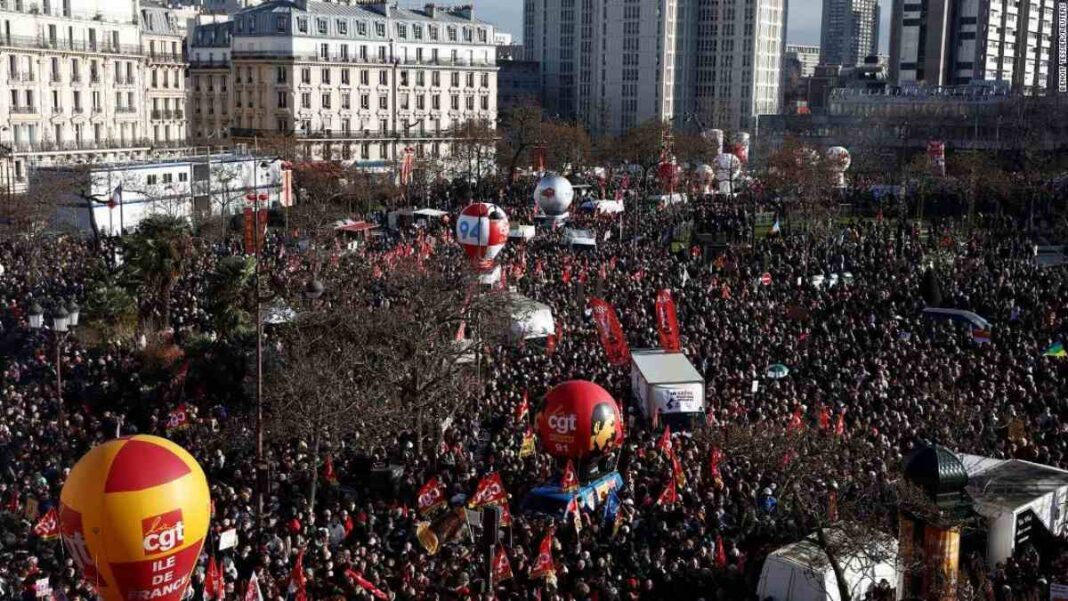FRANCE: Riot police clashed with demonstrators on Friday evening in Paris, as a fresh protest sparked against the French government’s plan to raise the state pension age. The escalating unrest, which has led to waves of strikes since the beginning of the year and a buildup of trash on the streets of Paris, has left France’s president Emmanuel Macron with the greatest challenge to his authority since the so-called “Gilets Jaunes” or “Yellow Vest” demonstrations of December 2018.
Late on Friday, protesters gathered in the Place de la Concorde, near the Assembly Nationale parliament building. Police used tear gas to break up the rowdy crowd. “Macron, Resign!” shouted some protestors as they came up against a line of riot police.
The chaos on Friday night was the same kind of chaos that happened on Thursday when President Macron decided to pass the controversial pension reform without a vote in parliament.
The overhaul raises the state pension age in France by two years to 64, which the administration says is important to assure the system doesn’t go bust. Most voters and unions disagree.
The French are very set on keeping their country’s official retirement age at 62, which is one of the lowest among OECD countries.
More than 8 out of 10 people are unhappy with the government’s decision to skip a vote in parliament, and 65% of those polled by Toluna Harris Interactive for RTL radio said they want strikes and protests to go on.
Going forward without voting “It is a denial of democracy… a total denial of what has been happening in the streets for several weeks,” said Nathalie Alquier, a 52-year-old psychologist in Paris. “It’s just unbearable.”
A wide alliance of France’s major unions said that they would continue to mobilise to force a change of heart on the proposed adjustments. Demonstrations are arranged for this weekend, with a fresh day of nationwide industrial action slated for Thursday.
The teachers’ union also called for strikes next week, which could disrupt the symbolic high school baccalaureate exams.
Since mid-January, there have been eight days of nationwide protests and many more local strikes. Most of these have been peaceful, but the chaos on Thursday and Friday was similar to the Yellow Vest protests in late 2018 over high gas prices, which made Macron change his mind about a carbon tax in part.
Opposition from political parties
On Friday afternoon, lawmakers from the left and centre who were against the government put in a motion of no confidence. Even though Macron lost his absolute majority in the lower house of parliament in last year’s elections, there was still a small chance that this would pass, unless a surprising coalition of lawmakers from all parties, from the far left to the far right, came together.
The leaders of the conservative LR party (Les Republicains) have rejected such an alliance. The first motion of no confidence that was filed on Friday wasn’t sponsored by any of them. Another petition from the far-right was anticipated later in the day.
Votes in parliament were expected to take place on Monday or over the weekend. Given that government officials are already putting together more socially conscious reforms, Macron will want to turn the page fast.
At some point, he may also decide to oust Prime Minister Elisabeth Borne, who has been at the center of the pension controversy. But either or both actions might do little to calm the rage on the streets. On Friday, neither of them had spoken in front of the press.
Also Read: Gunman Kills 3 and Injures Others in an Attack in Central Paris



